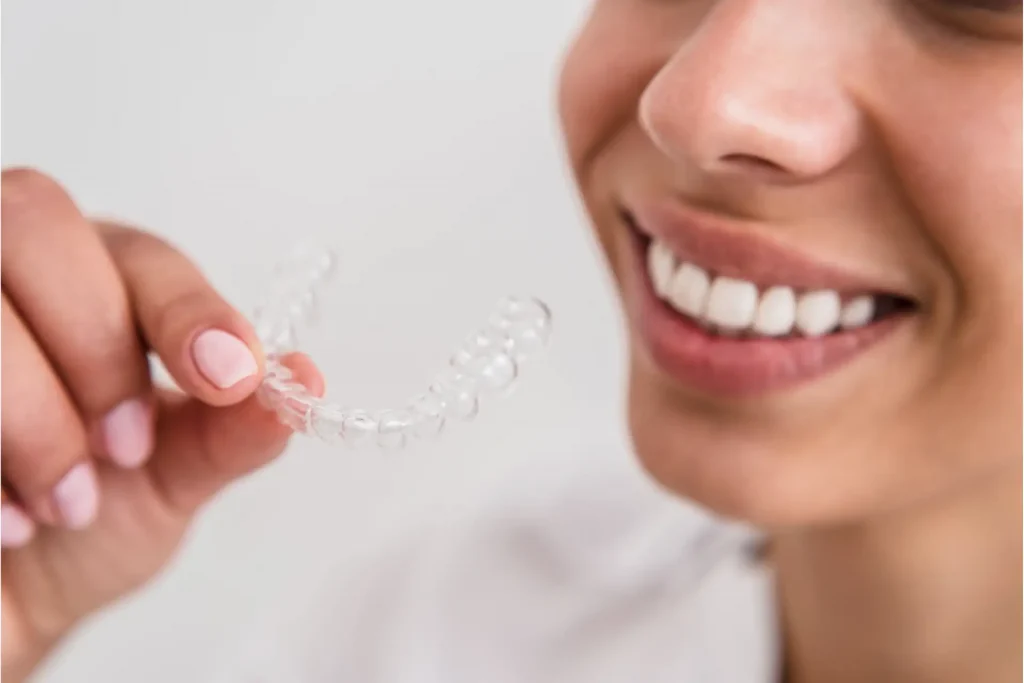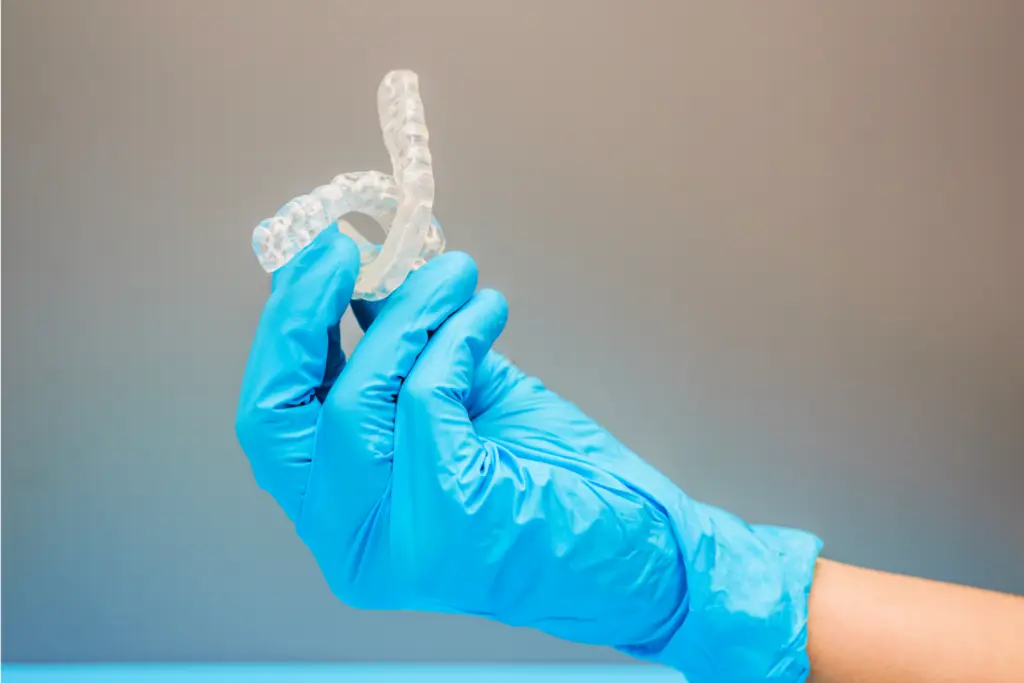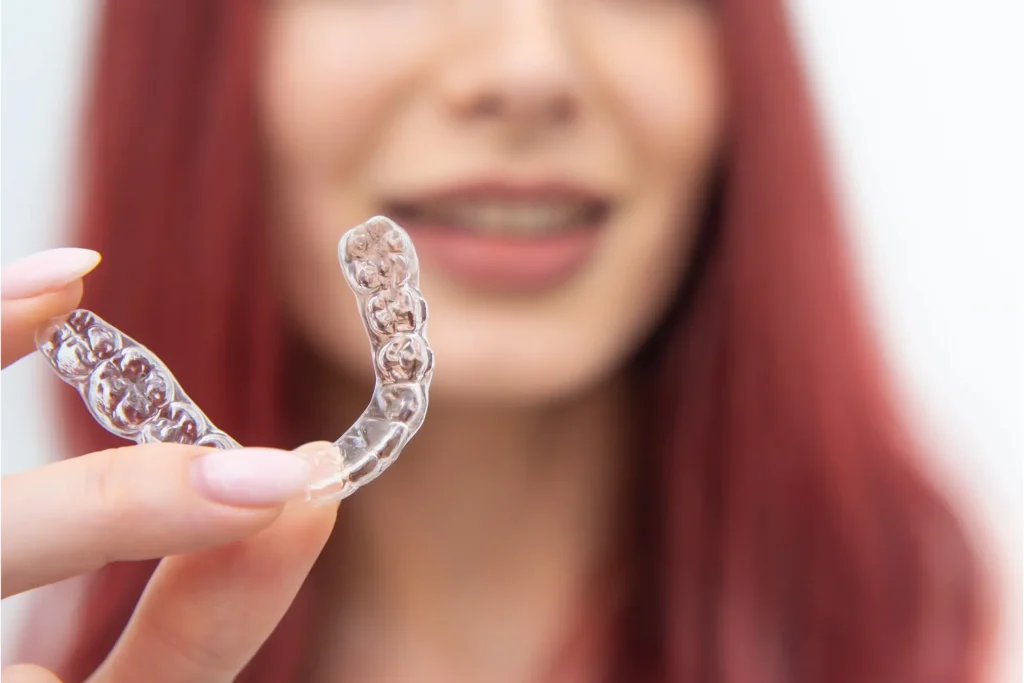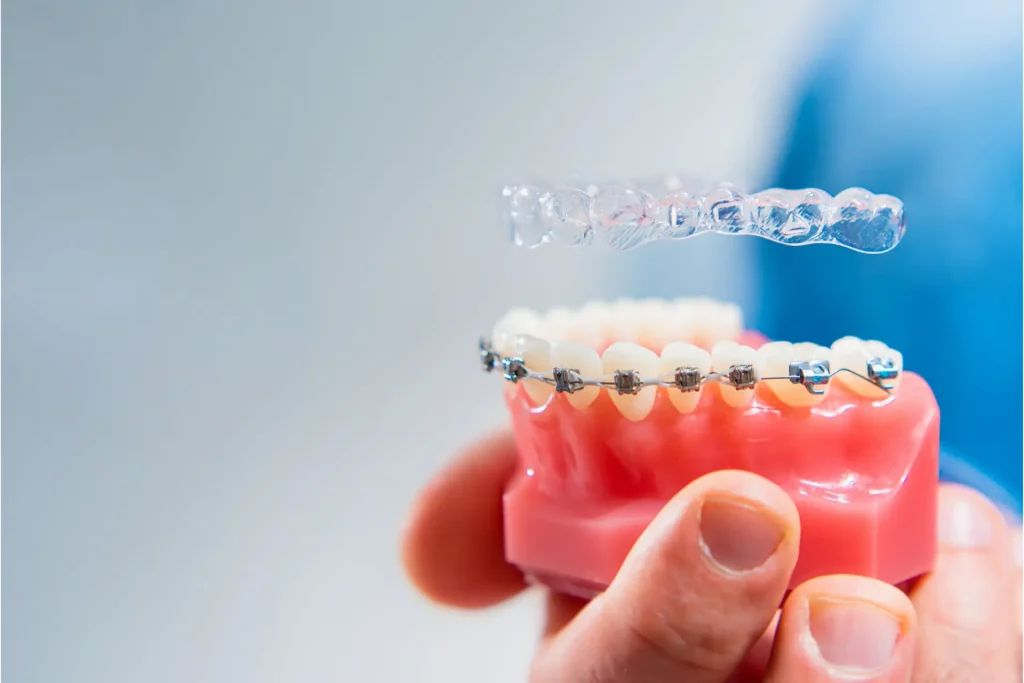
If you’ve looked into teeth straightening options, you’ve probably heard of Invisalign. The treatment is a popular choice for those who seek orthodontic treatment. Even though Invisalign is a reputable household name, there is an array of valid alternatives which you might want to consider.
Like other clear aligners, Invisalign treatment is virtually invisible, and made from polyurethane resins that have been moulded to the patient’s dental impression. Being so discreet, removable and comfortable makes them an attractive alternative to traditional braces.

Invisible aligners boast many advantages over traditional braces and at-home aligner kits. Here are just some of the biggest benefits.
Clear aligners are virtually invisible to the naked eye, making them an attractive choice for children, teens and adults who are concerned about their appearance.
The fact that clear aligners are removable gives the patient more freedom when it comes to food choices. While wearers of traditional braces have to avoid foods that can damage the braces or get trapped between them, clear aligner patients can generally eat whatever they want.
The removability of clear aligners also means that wearers can brush and floss easily, and enjoy better oral hygiene as a result.
Aside from their discreetness, clear aligners are noted for their comfort. They’re thin, flexible and lightweight, making them more comfortable than the metallic brackets and wires of traditional braces.

It would be wrong to assume that clear aligners are the ideal option for everyone. Here are a few reasons why they might not be for you:
It is the responsibility of the patient to wear their Invisalign trays for the instructed 22 hours a day. Failure to do so could result in dental complications and prolonged treatment.
People who are prone to misplacing their belongings may also need to purchase replacement retainers and trays regularly. This again can slow down the process of treatment and lead to hefty replacement bills!
If your malocclusion is too severe, Invisalign alone may not be the best treatment. Some cases require more complex orthodontic treatment. To find out more about severe cases, you can read our blog here.
Some patients may not like the pressure of clear aligners when they wear them for the first time. This can lead to the patient feeling demoralised, and eventually lead to tooth decay through poor orthodontic care.
Clear aligners are suitable for most patient cases, and can generally fix moderate levels of:
There is also no age limit for Invisalign as long as all adult teeth are fully present in the patient’s mouth. This means that most people can start to receive treatment from the age of 13, and the treatment can even treat malocclusions in those aged 60+.
However, there are some situations where Invisalign may not be suitable for you, such as:
If you’re uncertain as to whether or not you’re a good candidate for Invisalign, you should book an appointment with an expert to find out.

Invisalign is one of the most popular forms of clear aligner treatment, but it is not the only one. As the clear aligner industry grows, so does the range of brands available. Today, there are many brands offering valid solutions which may be suitable for your case.
There are other ‘in-office’ clear aligner providers that boast many of the same benefits as Invisalign, such as ClearCorrect. Every different provider will have their own pricing system, and offer unique advantages. To find out which one is best for you, you should speak to an expert dentist or orthodontist. They’ll be able to let you know your options, as well as give you a rough estimate of treatment length and cost.
As mentioned above, there are a number of sound alternatives to Invisalign that offer unique benefits that may be more suitable for your case. The best thing to do is speak to a licensed dentist or orthodontist, who’ll be able to advise you on the ideal clear aligner treatment.